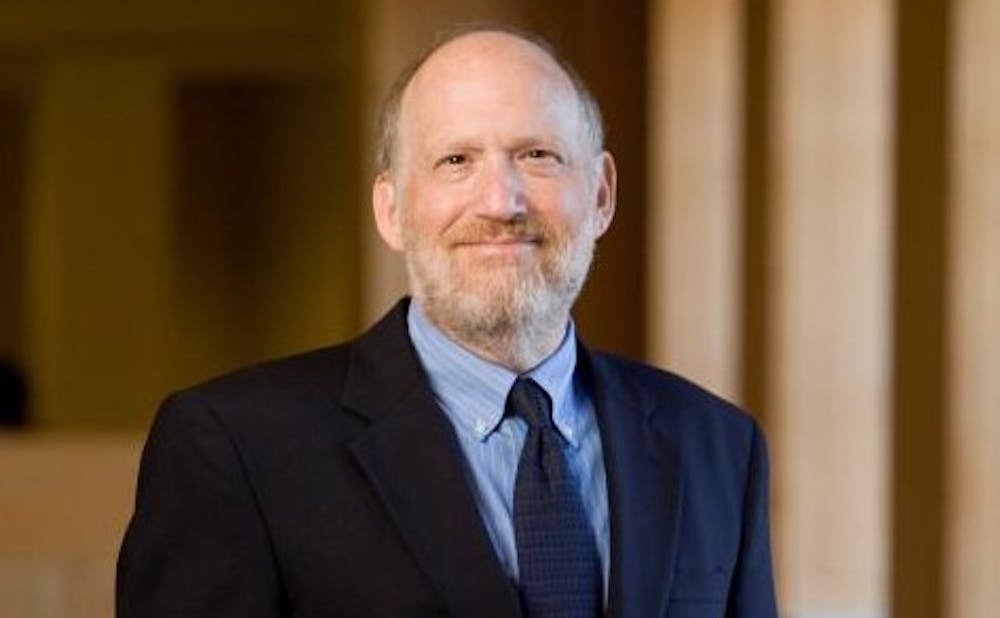Two Duke psychiatrists caution that we may not have enough information to make judgments about President Donald Trump's fitness despite national conversation centered around his mental and physical ability to serve.
Recent discussions around the president's mental fitness peaked last week when his doctor spent almost an hour taking reporters’ questions about his mental and physical health.
Marvin Swartz, professor in psychiatry and behavioral sciences, co-authored a paper twelve years ago which found that 18 of the United States’ first 37 presidents met the criteria for a serious psychiatric disorder. But why the recent emphasis on the current president’s mental health? Swartz explained that one reason people may call Trump’s fitness into question is because his behavior has not generally followed decorum set by past presidents.
“I think his behavior in general decorum has been such that people are questioning his judgment and his impulsivity,” he said. “So I think it has to do with the fact that he seems to be kind of erratic and says things that seem to lack the kind of judgment and decorum you’d expect from a president.”
Jonathan Davidson, professor emeritus of psychiatry and behavioral sciences, co-authored a paper in 2009, which found that seven of the 18 United States presidents in office since 1908 showed hubristic traits. The paper notes that several past presidents have suffered from documented mental health issues—Roosevelt and Johnson had bipolar disorder and Kennedy suffered from Addison’s disease and amphetamine abuse.
Swartz showed similar findings in his case study regarding past presidents and their mental health. He said that Abraham Lincoln had serious depression during his presidency and that Richard Nixon suffered from alcohol abuse to the extent that his staff tried to keep him away from decision making in the evenings when he was drinking.
“The main finding is that presidents suffer rates of mental illness generally consistent with the general population,” Swartz said. “So their rates of things like depression, anxiety disorders and alcoholism—things like that—are generally concordant with rates of mental illness in the general public.”
Since the rate of mental illness among presidents does not differ from those among the general public, the conversation about presidential fitness should differ from simply asking whether that individual suffers from a mental illness, he explained.
“Fitness to be president is on a different axis or domain than whether one is ill or not,” Swartz said. “There’s plenty of people with mental illness who are fit to do their jobs.”
Both psychiatrists were also cautious about the prominence of public diagnoses. Davidson said that his research looked at past presidents and prime ministers by analyzing historical biographical sources—but even so, he explained that biographical sources are not the same as diagnosing someone after talking for an hour.
“Certainly in order to make a diagnosis in a medical sense you need to see the person or have enough information at hand upon which you have a good basis to come up with your diagnosis,” Davidson said.
In light of recent efforts to publicly diagnose the president, Swartz mentioned the American Psychiatric Association’s Goldwater rule, which states that psychiatrists should not diagnose patients they have not met in person. He said that the rule is especially relevant in the context of psychiatrists are using their status as doctors to make a political point in presidential elections, which he noted is damaging to the trust that people put in the field of psychiatry.
Swartz added that diagnoses from afar can be damaging because they undermine the patient-physician relationship of confidentiality and further stigmatize mental illness by insinuating that people who have mental illnesses may be unfit for their jobs.
As for Trump, Davidson was hesitant to say that there is enough public information to draw a conclusion about his mental fitness.
“I don’t know that we’ve got enough information to come down with a clear warning about whether he’s a potentially dangerous person or that he’s not going to be up for the job,” Davidson said.
On what role psychiatrists should play in determining fitness, Davidson noted that psychiatrists are not very good at predicting future outcomes.
“It’s unknown territory,” he said.
Get The Chronicle straight to your inbox
Signup for our weekly newsletter. Cancel at any time.

